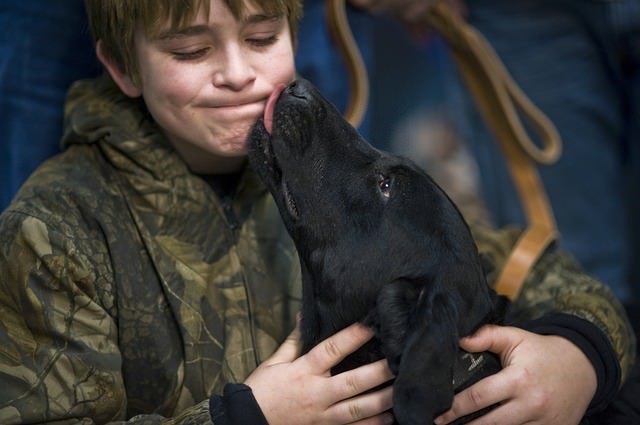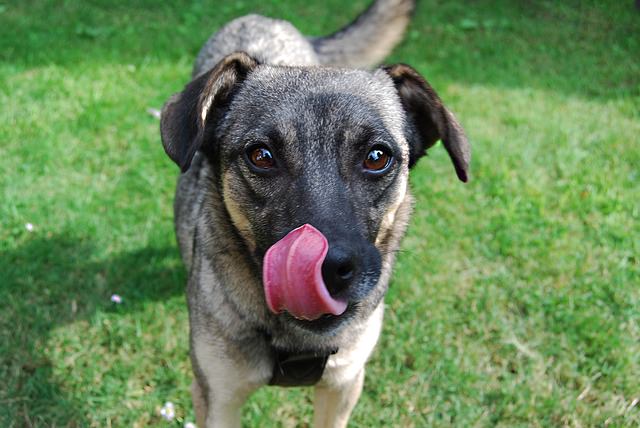Every veterinarian knows that animal patients are driven to lick wounds. We have all seen the destructive force it can be in surgical wound healing. I can recognize a wound that has been licked the instant I see it. Not only does licking potentially introduce infection, but the act of licking can break down tissues and suture. Many people still feel that as a natural response of a dog to a wound, it is a good idea. We also know that mother dogs lick their puppies at birth and beyond, to stimulate defecation and presumably to clean the pups and hide their scent.
Some people have advocated humans allowing dogs to lick our wounds based on the presumption that the canine saliva possesses an antiseptic properties. So does canine saliva resist the growth of infectious bacteria?

A study completed in 1990 suggested that there may be some bacterial growth inhibition in dog saliva, but only specific to certain strains of bacteria and only slight inhibition. E.Coli is a bacterium frequently responsible for neonatal infections and canine saliva was able to stifle its growth somewhat. This group of researchers speculated that the bactericidal effect against E. Coli and not Staphylococcus may explain the greater prevalence of Staph infections in wounds (46%) versus E. Coli (9-17%). (1)
A more recent study warns that because of the difference in bacterial flora (naturally occurring bacteria) in a dog’s mouth in comparison to human skin, it is not a good idea to allow dogs to lick human wounds for fear of a zoonotic disease resulting. (2)
It isn’t a good idea to let your dog lick your wounds and it really isn’t a good idea to let him lick his own. Despite the suggestion that there may be bactericidal benefits, the trauma caused by the friction of licking is destructive to the healing process. Your best bet on a wound is to consult a veterinarian for your dog (or physician for you). Medical assessment can tell you if the best bactericidal action will come from antibiotics and if bandaging, suturing or surgery is in order.

Of course, I hear frequently that in the wild no one would attend a wound for a dog and he would lick it, but we have the ability to keep injuries much cleaner using aseptic practices than licking can ever do, and dogs in the wild would never have surgical incision sites. Remember, in the wild, your individual dog might succumb to a minor wound when it became infected and licking is his only tool
We know better now and we are responsible for our pets’ well being. Don’t trust nature to manage a wound. If you seek medical help, your pet’s healing time will be shortened and his pain and suffering better managed. His chances of complete recovery without lasting effects are much greater with a professional intervention. Letting nature take its course in these cases might mean death or disfigurement for your dog.
- Physiol Behav. 1990 Sep;48(3):383-6.Antibacterial properties of saliva: role in maternal periparturient grooming and in licking wounds. Hart BL, Powell KL.
- Tijdschr Diergeneeskd. 2012 Sep;137(9):594-6.[Is being licked by dogs not dirty?][Article in Dutch] Overgaauw P, van Knapen F.
